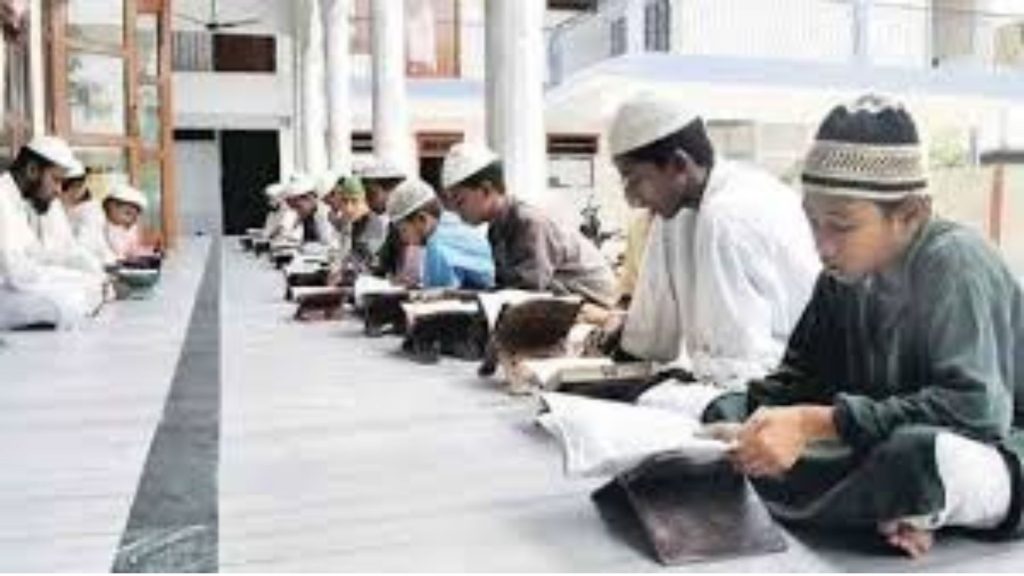Context:
Recently, the Supreme Court issued a stay on the recommendations of the National Commission for Protection of Child Rights (NCPCR) to close down government-aided madrasas that do not comply with the Right to Education (RTE) Act of 2009.
More on the News

- This decision comes in response to a plea filed by Jamiat Ulama-i-Hind which said that the NCPCR recommendations are violative of Articles 14, 19(1)(g), 21, 25, 26(a), and 30(1) of the Constitution of India.
- The Supreme Court also ruled that the directives from the Centre, Uttar Pradesh, and Tripura shall not be enforced.
- Earlier, the NCPCR had raised serious concerns about the state of functioning in Madrassas and called for stopping state funding to them unless they comply with the RTE Act, 2009.
- Acting on NCPCR’s recommendations, the state governments of Uttar Pradesh and Tripura asked their District Collectors to conduct a detailed investigation of all government-aided/recognised madrassas. The Union government wrote to all states and Union Territories to take action as per the NCPCR’s instruction.
Implications of the Supreme Court’s Stay

- Protection of Minority Rights: The stay order addresses concerns raised by Jamiat Ulama-i-Hind about the rights of religious minorities under Article 30 (It allows minorities to establish and administer their own educational institutions) of the Constitution.
- Educational Continuity: The Supreme Court’s decision ensures that madrasas can continue their operations without immediate threat of closure, pending further orders.
- Legal Scrutiny: The stay allows for a more thorough examination of the NCPCR’s recommendations and their potential impact on minority educational institutions.
About NCPCR
- The National Commission for Protection of Child Rights (NCPCR) is a statutory body established in 2007 under the Commission for Protection of Child Rights Act, 2005.
- It operates under the administrative control of the Ministry of Women & Child Development, Government of India.
- The NCPCR’s primary mandate is to protect, promote, and defend child rights in the country.

